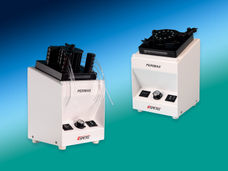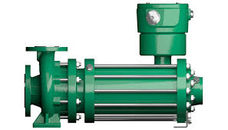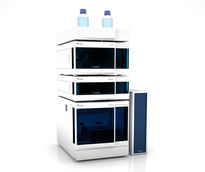Demand for advanced industrial pumps in Turkey
Advertisement
Increasing greenfield projects and rising infrastructure investments are expected to drive demand for industrial pumps in the Turkish market. Energy-efficiency regulations present further growth potential for technologically advanced industrial pumps. This will have a huge impact on the market as local manufacturers scout for mergers and acquisition opportunities to offset the high costs of research and development (R&D).
New analysis from Frost & Sullivan, Analysis of the Industrial Pumps Market in Turkey, finds that the market earned revenues of $478 million in 2012 and estimates this to reach $814 million in 2017. Of the centrifugal pumps (single-stage, multi-stage, axial and mixed-flow, submersible, and seal-less and circulator) as well as positive displacement pumps (rotary, reciprocating and peristaltic) covered in the study, single stage centrifugal pumps are expected to find more takers due to their competitive prices.
“Technologically advanced pumps that enable reduction in energy costs have bolstered end-user intent to replace older pumps within their facilities,” said Frost & Sullivan Industrial Automation and Process Control Research Analyst Ahmet Kesoglu. “New European Union regulations that require companies to produce energy-efficient products also fuel uptake of advanced industrial pumps.”
However, the improved product quality and lifecycle of newer pumps negatively impacts the market for spare parts. Customers are unlikely to replace their operating pumps unless significant technological developments occur. This challenge is compounded by the geo-political uncertainty in the Middle East, which has compelled end users to be extremely cautious with their investments.
While multinational companies have the advantage of superior quality products, the price-sensitivity of the Turkish market demands that the latest technologies be offered at competitive prices. Increasing awareness about technology in the demanding end-user industries poses a significant challenge for local manufacturers, whose products are less technologically advanced.
“Foreign entrants will have to forge alliances with local manufacturers to ensure a smooth entry and gain access to niche markets,” prescribed Kesoglu. “These partnerships will benefit local manufacturers too, as they require R&D funding to boost the quality of their products and gain an edge in this competitive landscape.”
Topics
Organizations
Other news from the department business & finance
These products might interest you

Peristaltic Pumps by AHF analysentechnik
Reliable and Low-pulsation Transport of Liquids in Laboratory Analysis

Typ CNF / Typ CAM by Hermetic-Pumpen
Reliable pump technology for hazardous applications
Shaft seal-free pumps for maximum reliability and safety

AZURA Analytical HPLC by KNAUER
Maximize your analytical efficiency with customized HPLC system solutions
Let your application define your analytical system solution

Get the chemical industry in your inbox
By submitting this form you agree that LUMITOS AG will send you the newsletter(s) selected above by email. Your data will not be passed on to third parties. Your data will be stored and processed in accordance with our data protection regulations. LUMITOS may contact you by email for the purpose of advertising or market and opinion surveys. You can revoke your consent at any time without giving reasons to LUMITOS AG, Ernst-Augustin-Str. 2, 12489 Berlin, Germany or by e-mail at revoke@lumitos.com with effect for the future. In addition, each email contains a link to unsubscribe from the corresponding newsletter.

























































